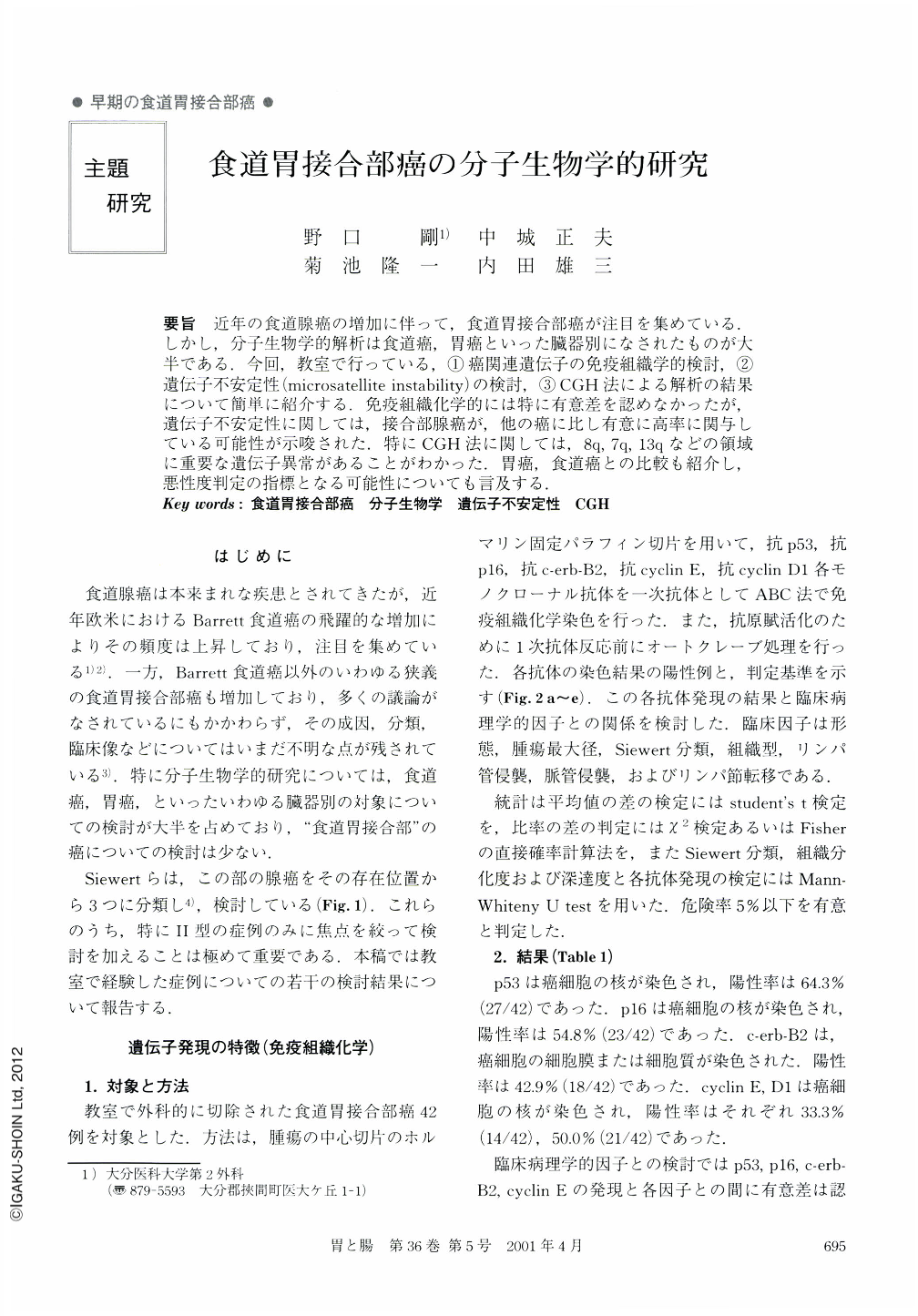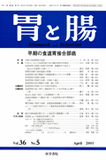Japanese
English
- 有料閲覧
- Abstract 文献概要
- 1ページ目 Look Inside
要旨 近年の食道腺癌の増加に伴って,食道胃接合部癌が注目を集めている.しかし,分子生物学的解析は食道癌,胃癌といった臓器別になされたものが大半である.今回,教室で行っている,①癌関連遺伝子の免疫組織学的検討,②遺伝子不安定性(microsatellite instability)の検討,③CGH法による解析の結果について簡単に紹介する.免疫組織化学的には特に有意差を認めなかったが,遺伝子不安定性に関しては,接合部腺癌が,他の癌に比し有意に高率に関与している可能性が示唆された.特にCGH法に関しては,8q,7q,13qなどの領域に重要な遺伝子異常があることがわかった.胃癌,食道癌との比較も紹介し,悪性度判定の指標となる可能性についても言及する.
The incidence of gastro-esophageal junction adenocarcinoma has remarkably increased especially in Europe and the USA over the last 20-30 years. Nevertheless, its clinicopathological features and its suitable surgical treatment are still controversial. In this report, we describe the result of our molecular analysis on GEJ carcinomas, Siewert type Ⅰ and Ⅱ.
From the results of immunohistochemical staining of p53, p16, c-erb-B2, cyclin E and cyclin D1, there were no significant differences in any of the clinicopathological parameters except that the positive rate of cyclin D1 was higher in squamous cell carcinoma than in adenocarcinoma and higher in the protruding type than in the ulcerative type.
As to the microsatellite analysis, MSI positive rate in GEJ adenocarcinomas is significantly higher than in esophageal squamous cell carcinomas and gastric adenocarcinomas. Finally, it was proved from CGH analysis that the important genes in the carcinogenesis and progression of cancers in this area exsist in 8q, 7q, 13q and so on. These results of CGH analysis are quite different from our results concerning gastric adenocarcinomas.
From the results of our analysis, the molecular features of GEJ adenocarcinomas might be different from gastric adenocarcinomas. Further research and more cases are needed to elucidate this.

Copyright © 2001, Igaku-Shoin Ltd. All rights reserved.


